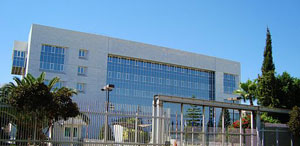The banks of Cyprus and the pursuit of integrity
March 20th, 2013
March 20th, 2013
Cross posted from Transparency International’s Space for Transparency blog.
 The bail out of the troubled banking sector in Cyprus has taken on serious political overtones as the crisis deepens. During the past few weeks Cyprus has been accused of failing to combat money laundering and fraud and that Russian oligarchs seek refuge for their money in this “tax haven” country.
The bail out of the troubled banking sector in Cyprus has taken on serious political overtones as the crisis deepens. During the past few weeks Cyprus has been accused of failing to combat money laundering and fraud and that Russian oligarchs seek refuge for their money in this “tax haven” country.
Now the strongest members of the European Union want a tax on Cypriot bank deposits to pay for part of the bail out. This news has not only enraged many Cypriots, but more importantly it has also brought the focus back to Cypriot banks. The anger stems in part from the belief that the euro zone has a role in creating the crisis. In particular, euro zone leadership is blamed for playing a part in the decision to slash the value of Greek debt – a major holding of Cypriot banks, and precipitating the Mediterranean island’s banking crisis.
Still, among the contributing factors to the problems facing Cyprus is a lack of integrity in the financial sector – a central failure in the global banking system that created a fertile environment for the financial crisis of 2008.
Cyprus is not alone, but it illustrates the devastating effect that this lack of integrity can have. Like Ireland and Iceland before it, Cyprus must come to terms with a banking system that is devouring its economy.
For too long senior executives at the banks of Cyprus ignored the long term public interest in favour of short term, personal (or corporate) financial gain.
This is why the banking sector grew to be at least five times the size of Cyprus’ GDP. In a March 16 statement on the agreement, the Eurogroup — an informal body of euro zone finance ministers — said the “current fragile situation of the Cypriot financial sector” was linked to its large size relative to the country’s GDP.
Banks’ obligations to society derive from the fact that they are licensed by the government. Let us not forget that it is a privilege, not a right, to operate a bank. They are licensed precisely in recognition of the fact that they play a critical role in the smooth functioning of the economy.
That leads to the next question: Where were the regulators whose job it is to ensure the safety and soundness of the banking system? No one is talking about how they failed in their jobs.
Cyprus is clearly not the first country to face such criticism, which is why Transparency International has the following recommendations for the global banking industry:
These recommendations will not solve the problems of Cyprus overnight, but they can begin to address the deeper issues. It goes without saying that cultural change will require a large investment of time and resources.
Carousel image: Financial destrict skyscrapers Nicosia Republic of Cyprus. Copyright: Wikimedia Creative Commons/ Tofabuilding